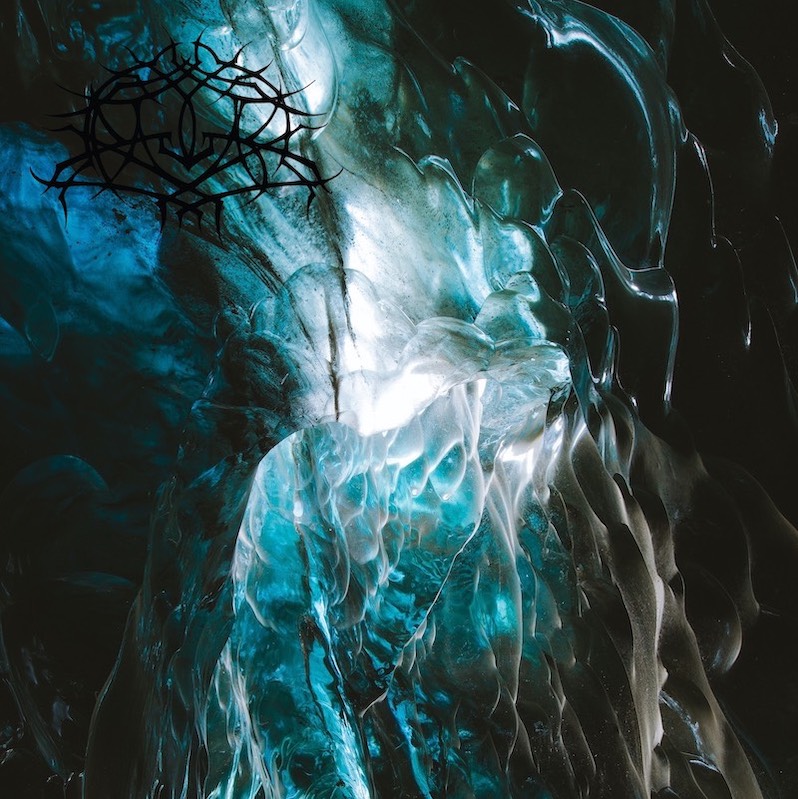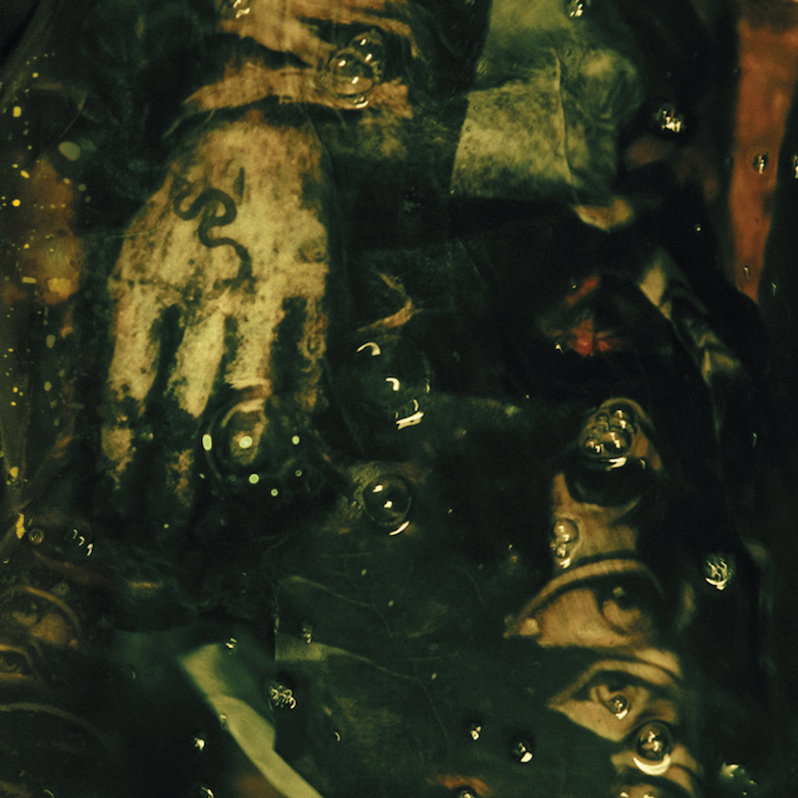Krallice : Crystalline Exhaustion

Krallice is, to put a not-too-fine point on it, one of my favorite bands going for the past roughly 15 years. I’ve written extensively about this band elsewhere and have, over time, written about every single project released under the name save for their previous LP Demonic Wealth which was covered here by Fern Drew. Thankfully, this is a band that rewards that kind of attention and love, not for the tedious reasons of cloaking themselves in unnecessary mystery and nearly-ARG levels of mixed up layers like some bands might but instead by being consistently interesting in an organic way. Their constant subtle shifts feel at times like a progressive/black metal equivalent of a band like King Gizzard and the Lizard Wizard, another group that likewise places a sonic ideal in the center of their universe but chooses instead to wheel about it through the carousel of complementary aesthetics rather than replicate the one idiom on and on forever. There are bands that live in the AC/DC mold of “one album, forever,” and several of those groups do it well, but Krallice is not one of them. Gratefully, Crystalline Exhaustion is no different in this regard.
The first sound the listener is greeted with is that of cold synthesizers, a sound that lurks somewhere in the muddy space between the icy synth work of progressive death metal band Nocturnus (especially on their landmark record The Key) and Rush’s most abstract work such as on Hemispheres or “The Camera Eye.” It wouldn’t shock me, of course, to know that Colin Marston, the man on the keys for this record, might have had both in mind when constructing the sound palette here. Hell, I wouldn’t be shocked if ice-clad kosmische keyboard warriors such as Vangelis and Edgar Froese were on the mind either. When the band fully kicks in, it’s with a sense of space that is atypical for the group, gesturing more to records from their back catalog like Ygg Huur or Go Be Forgotten than the notably busy and byzantine early four records. It’s strange to say this, certainly, given the amount of blast beats and tremolo picking on the record but, like any of the great cosmically-inclined black metal records, the emphasis is often less on the raw intensity this type of playing can evoke and more with the sheets of sound it produces.
The mood here is abstract and alien, a mood again not unlike that explored by Krallice in the past. There is a lineup change at work on this record, with Mick Barr and Nicholas McMaster swapping roles on bass and guitar while Colin jumps over to exclusively play keyboards, perhaps inspired by his recent slate of side material including a spate of dungeon synth records. Shockingly, this change in who plays what seems to have affected the finished music relatively little; if I had to guess, it seems more a way for everyone to stay inspired rather than an attempt to radically alter the idiom of the music. At the end of the day, this still feels absolutely like Krallice, even if the specific contours and crenelations across these compositions come out different. A gander at the lyrics seems to indicate this is a concept album, with recurring references to life frozen and unfrozen, an inherent evil within flesh, and a juxtaposition of the crystalline nature of absolute time and space versus the seething and writhing nature of the organic, but like with many of the interior angles of this band, it may just be me seeing shadows. They are known for their high concept and deceptively literary lyrical and conceptual underpinnings to their work, however, so I wouldn’t put it past them.
Perhaps the most fascinating thing, then, is how Crystalline Exhaustion feels like an expansion of their work on Go Be Forgotten, taking the way prominent keyboards altered the sense of space and directionality on that record and expanding it here to perhaps their most clearly prog metal record to date. Despite the frantic blasts, this album feels almost the furthest they’ve shot from black metal in terms of the texture of the album; it’s easy to imagine a world where the keyboards are less prominent rather than often taking the lead role, or a world where Colin joins in on second guitar, where the frenetic energy here would feel closer to the maximalist peak of Dimensional Bleedthrough. The shift however places this record closer to Voivod than to Darkthrone, which in turn feels more and more like Krallice shirking off the bounds of genre wreathed around them by broader extreme metal and prog culture to become more themselves than anything else.
Given the origins of these players, especially the two founding members Colin Marston and Mick Barr, it’s hard to imagine this band becoming less inscrutable with time. After all, Krallice is still at heart a band founded by people who created Indricothere, Orthrelm/Ocrilim, Encenathrakh and Behold the Arctopus. The fact that this group has been so untameably inhuman over their entire lifespan is perhaps their most laudable trait. This is the mutant child of Rush, the thing that would emerge if you took “Cygnus X-1” Books One and Two and sent them up in a rocketship to whirl as close as they could to the sun for one billion years before returning to earth pustuled and cancer-ridden. This is the sound of gravity captured from the Big Bang and the crystals of time cracking. That it is so forbiddingly alien is the point; black metal is a spiritual music and this strikes at a ravenously outside spirit, one that is less perpendicular to the world as black metal-via-Satan seeks to be and more tangential, charting the same pathway to the wisdom beyond the stars as Voivod before them. It in turn is, as I had predicted, the logical step following their last proper band recording in Mass Cathexis, feeling at once closer to a core record of the group than a deliberate focused experiment while also prominently featuring elements from previous experiments the group carried out. They remain for my money the most exciting black metal band, as they have for years. Now we wait to see what step comes next for the band.
Label: Self-released
Year: 2022
Similar Albums:
Langdon Hickman is listening to progressive rock and death metal. He currently resides in Virginia with his partner and their two pets.




